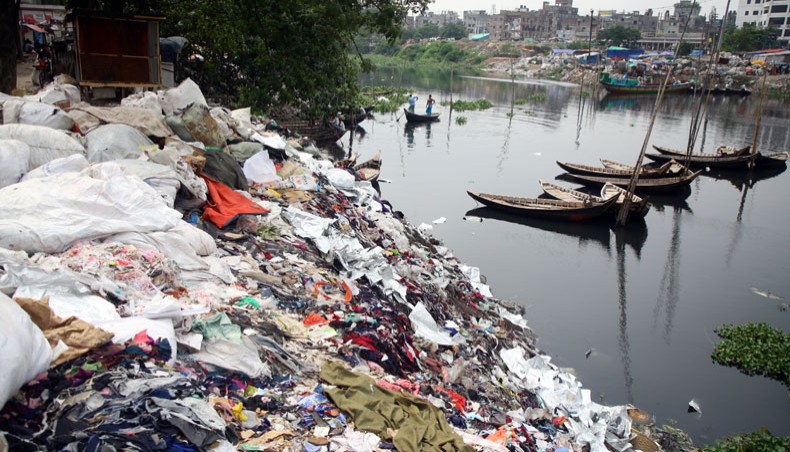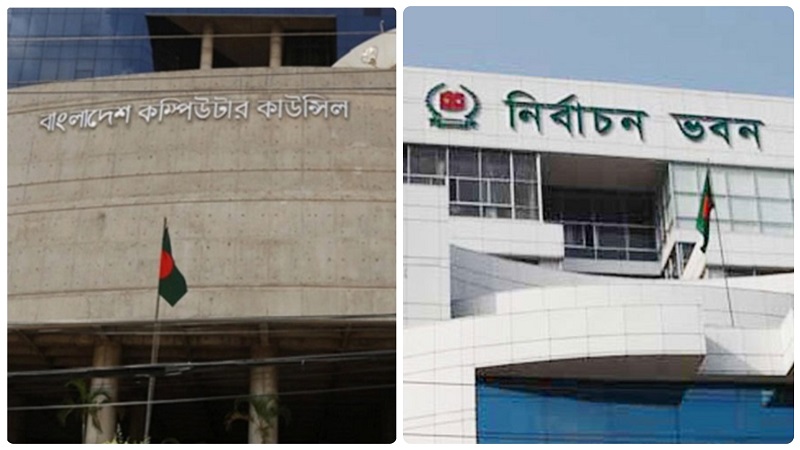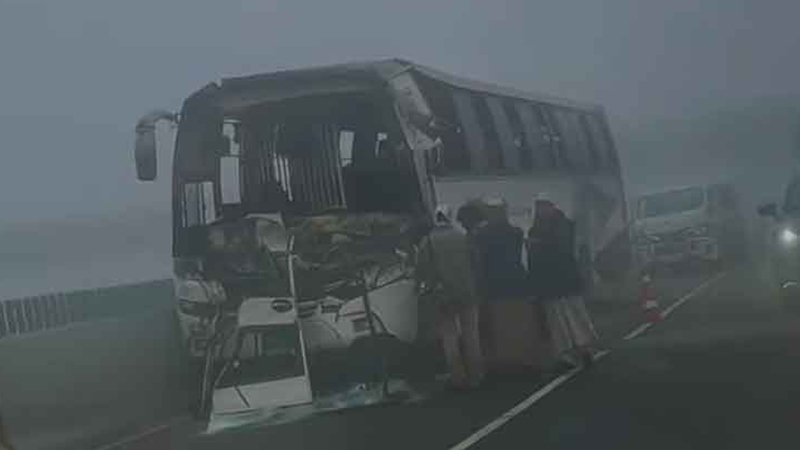Laws, rules, HC directives go in vain
No pragmatic step is yet to be taken to protect the four rivers surrounding Dhaka even after declaring them ecologically critical 13 years ago.
In September 2009, the Department of Environment declared the four rivers Ecologically Critical Areas under Section 5 of the Bangladesh Environment Conservation Act. There are total 13 ECAs in Bangladesh.
The government formulated the Ecologically Critical Areas (ECA) Management Rules 2016 for implementing the act, including restoring and protecting the ecology of the endangered ECAs.
As inaction by the government agencies concerned drags on, the pollution of the Buriganga, the Turag, the Balu and the Sitalakhya has been intensifying, risking the water security of some 20 million people of the capital city of Bangladesh, the world’s largest delta, said green activists.
Environment minister Shahab Uddin, however, said that the environment department was struggling to protect the rivers with its limited manpower, but, he added, its efforts cannot succeed without cooperation of other ministries.
National River Conservation Commission chair Manjur Ahmed Choudhury said that he did not see any pragmatic step taken by the DoE as the agency did not even form a committee to work out a plan of action to restore the ecology of the rivers, a measure mandatory according to the 2016 rules.
Manjur said that not only the four rivers around the capital but most of the rivers across the riverine country were now in a critical condition due to pollution and grabbing.
On the occasion of World Environment Day today, a coalition of environment advocacy organisations has arranged a mass bathing in the Buriganga to press the demand for ensuring fresh water in the river by checking all sorts of pollution so that people can use the river water without any harm caused to them.
The government and various NGOs have also chalked out numerous programmes marking the day.
The UN Environment Programme has set the theme for this year’s World Environment Day as Only One Earth: Living Sustainably in Harmony with Nature. We need to save this world, save all kinds of animals, plant more trees.
NRCC chair Manjur Ahmed at an event on the day at the National Press Club in the capital on Saturday said that the water of the rivers around Dhaka became toxic because of pollution.
‘If anyone falls in these rivers in March and April they will die not for the inability to swim but for the toxicity of the water,’ he added. The river water has become a death threat for people, he further said.
Green activists and researchers blamed the Dhaka WASA as the top responsible agency for the pollution caused mainly by industrial and municipal wastes.
DoE officials, quoting lab test reports, said that the water quality of the four rivers had been remaining so bad for eight months between October and May for years that aquatic life could not survive in them.
According to a lab report, the Buriganga water’s biochemical oxygen demand, or BOD, stood at between 15 and 20 and dissolved oxygen, or DO, at zero while the BOD standard is below six and the DO value should be more than 5 in any surface water body.
Dhaka WASA managing director Taqsem A Khan said that the agency was diverting its water intake point to the Meghna and the Padma as the Sitalakhya and Buriganga water was now not treatable due to the extreme pollution.
The water pollution in the Buriganga and the Sitalakhya, he said, is so acute that their water cannot be treated for several months in the dry season.
As the water of the rivers is no more treatable, the lone water supplying agency will collect water from the Padma, 33 km away from the city, and the Meghna, 22 km away, he said.
Bangladesh Poribesh Andolon executive vice-president Abdul Motin criticised the Dhaka WASA plan as he blamed that the agency itself was polluting the rivers.
‘It is a ridiculous plan of the Dhaka WASA to collect water from the Padma and the Meghna instead of stopping the water pollution in the nearby rivers,’ he said.
Institute of Water Modelling executive director Abu Saleh Khan said that the water security of the people living in the capital city and some other parts of the country is gradually becoming more and more challenging due to unabated pollution.
‘We are fortunate as we have vast water, but we are very unfortunate as we cannot protect water from pollution,’ he said.
He cautioned that if the water pollution was not stopped water security would be at risk not only in Dhaka but across the entire country.
Donors, he noted, are now worried about investing even in the Meghna water treatment plant due to pollution.
Industrial units are dumping untreated effluents in the rivers to save money even though they have treatment plants, Abu Saleh resented.
Environment minister Shahab Uddin admitted that some factories were involved in this practice, adding that the DoE has limited manpower for monitoring the factories regularly and for bringing the errant industries to book.
‘We are working to bring the effluent treatment plants under an online monitoring system,’ he said.
A research published on the ScienceDirect website in February 2021stated that more than 7,000 industrial units in Hazaribagh, Tejgaon and Dhaka-Narayanganj-Demra areas discharged some 60,000 cubic metres of toxic waste-water into the four rivers every day.
The unavailability of treatable surface water is also prompting the Dhaka WASA to dig deeper for water, risking both the quantity and quality of ground water as the acquirer continues to decline.
Taqsem admitted that Dhaka WASA collected 20 per cent of the total sewage generated in Dhaka but denied the responsibility for the rest.
‘Households will manage their waste by themselves as the Dhaka WASA does not collect any bills from them for the purpose,’ he explained.
However, he said that five sewage treatment plants were under construction according to the Dhaka WASA sewage master plan.
Once the plants start operating by 2030 no sewerage will fall into the rivers, he said.
NRCC chair Manjur also said that the NRCC was working with the Bangladesh University of Engineering and Technology to develop a model of water treatment that would release clean water into the rivers after treating polluted water in canals.
Thereafter, the government had taken some steps but except relocating the tanneries from Hazaribagh to Savar in 2017 and demarcating rivers no othersteps were implemented fully.
BAPA general secretary Sharif Jamil said that the tanneries were now polluting the Dhaleshwari River in Savar, upstream of the Buriganga.
The government in 2009 also formed the high-powered National Taskforce to Protect Rivers and the National River Protection Commission for saving not only the four rivers but all rivers of the country. The taskforce is now almost inactive.
The High Court in July 2019 declared all rivers as living entities, observing that the country will survive if the rivers are protected.
Green activists said that even after having many laws and HC directives the government was not sincere in saving the rivers of the country.
‘Without political commitment, river pollution and encroachment cannot be stopped,’ said MA Abdul Matin, a former BAPA president.













